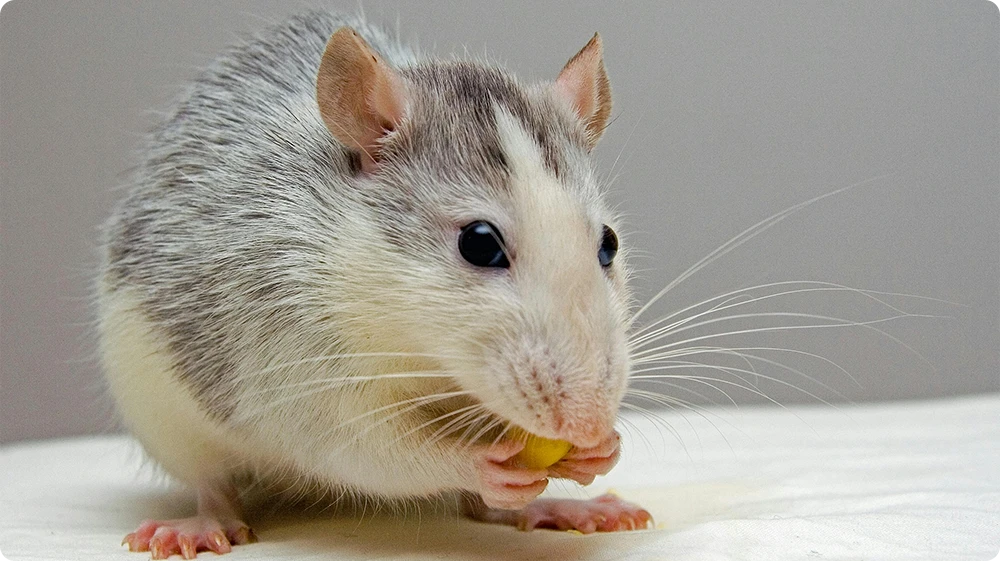Musophobia is a specific phobia that involves irrational fear of mice and rats. It is a common phobia in the UK and can cause significant anxiety and distress, impacting daily life activities. It’s often said that the fear started because rats were linked to the terrible sickness of the Great Plague.

Defining musophobia: The fear of mice and rats
Musophobia, also known as Murophobia or Suriphobia, is a persistent or overwhelming fear of mice or rats. We often worry about rats for practical reasons like food and sickness, but for those with musophobia, the fear causes severe anxiety and problems in their daily lives.
How common is musophobia?
Accurate figures for an actual phobia are challenging to obtain, but it is estimated that thousands of people across the UK experience musophobia. Some studies suggest that as many as 1 in 6 people in the UK are affected by musophobia. The phobia is reportedly more common in females than males.
Musophobia vs Fear of Rats: What’s the difference?
It’s important to distinguish between a general dislike or unease around rodents and a phobia. Musophobia involves an intense and irrational fear that can lead to significant distress and impact daily life, potentially causing avoidance behaviours and even panic attacks. To be classified as musophobia according to the DSM-5-TR (Diagnostic and Statistical Manual of Mental Disorders, Text Revision), the fear of rats must meet the following criteria:
- Marked fear or anxiety about rats or mice
- Mice or rats almost always provoke immediate fear or anxiety
- Mice and rats are actively avoided
- The fear of mice is out of proportion to the actual danger
- The fear, anxiety or avoidance is persistent, typically lasting for 6 months or more
- The fear or anxiety causes clinically significant distress
- The disturbances are not better explained by the symptoms of another mental disorder
How musophobia affects you: key symptoms
The symptoms of musophobia vary from person to person. However, they often involve psychological, physical, and behavioural responses.
Psychological symptoms | Physical symptoms | Behavioural symptoms |
Feeling of panic | Increased heart rate and palpitations | Screaming or crying |
Significant nervousness or worry | Profuse sweating, especially on the palms, forehead, or underarms. | Trying to escape the situation. |
A sense of losing control | Trembling of the hands, legs, or entire body. | Seeking reassurance from other people. |
Persistent images of rats or mice. | Shortness of breath | Constantly looking for signs of mice. |
Actively trying to avoid places where mice or rats might be present | Feeling of nausea. | Avoiding conversations or pictures of mice, |
Spending an excessive amount of time worrying about encountering mice or rats. | Feeling dizzy or unsteady. | Sleeping difficulty due to fear of encountering mice during the night. |
Looking for more information on Mental Health First Aid? Visit our Mental Health First Aid courses to explore available training options.
How to overcome musophobia effectively
The most effective way to deal with musophobia is to learn about the symptoms and develop coping strategies. You can learn to deal with the feelings and manage the symptoms through different therapies available both online and offline. Let’s have a quick look at some of them.
Cognitive behavioural therapy
- Cognitive behavioural therapy offers a practical and structured path to tackling the fear of rodents.
- The therapy focuses on the powerful connection between thoughts, feelings, and actions.
- CBT helps to identify the negative automatic thoughts about rodents and replace them with more balanced and practical thoughts.
- Graded exposure is a key element for CBT, where you learn to confront your fear of mice slowly and safely in a controlled environment.
Counselling
- Counselling provides a supportive and confidential space to explore the emotional roots of your musophobia.
- It offers valuable insights and coping mechanisms.
Hypnotherapy
- Hypnotherapy offers a quick approach by harnessing the power of focused attention and deep relaxation to access your subconscious mind.
- Through suggestion and guided imagery, hypnotherapy can help to reframe your negative associations with mice and rats, replacing fear with feelings of calm and neutrality.
Frequently Asked Questions
What is musophobia, and what causes it?
Musophobia is the intense fear of mice and rats, which can stem from past traumatic experiences, genetic predisposition, or learned behaviours. This phobia often causes significant anxiety when confronted with rodents or even thoughts of them.
What are the symptoms of musophobia?
Symptoms include rapid heartbeat, sweating, shortness of breath, dizziness, and an overwhelming desire to flee when encountering mice or rats. These physical reactions can severely impact daily life, especially in environments where rodents are common.
How can I overcome musophobia?
Overcoming musophobia typically involves cognitive behavioural therapy (CBT), exposure therapy, and relaxation techniques like deep breathing and mindfulness. Seeking professional help is crucial to develop a plan tailored to your needs, helping you manage fear more effectively.
How common is musophobia in the UK?
Musophobia is relatively common, especially in urban areas where encounters with rodents are more frequent. The severity of the phobia can vary, with some individuals experiencing only mild anxiety, while others may suffer from intense fear and panic attacks.
Is it possible to have musophobia and a fear of saliva together?
Yes, it’s possible to experience both musophobia and sialophobia (fear of saliva) simultaneously. These two phobias can exacerbate each other, leading to heightened anxiety in situations where both fears are triggered.
Explore our expert-led first aid and mental health training courses
Interested in building the skills to help in both physical and emotional emergencies? At Hurak, we offer a range of accredited, expert-led courses designed to equip you with essential life-saving and mental health support knowledge.
- Emergency First Aid at Work (EFAW) – A one-day Level 3 course ideal for low-risk environments. Learn how to handle common workplace emergencies with confidence.
- Basic Life Support (BLS) Course – Master critical procedures like CPR, how to use an AED, and how to respond to choking—skills that save lives.
- Mental Health First Aid (MHFA) – Learn to recognise signs of mental distress, offer initial support, and guide people toward professional help, whether at work or in everyday life.
If you or someone you know is struggling with a fear like musophobia, our Mental Health First Aid courses can help you better understand and support those affected.





